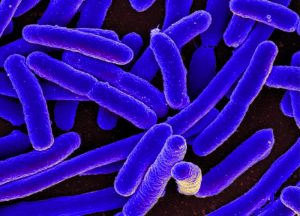By Jory Lange
The Philadelphia E. coli outbreak grows to include a 19th victim. “Shared restaurant exposure” is linked to this Philadelphia E. coli outbreak. This means that the outbreak source is likely a restaurant or restaurants known to the Philadelphia Department of Public Health—but whose identity has not yet been publicly identified.

The Philadelphia Inquirer broke the story on September 5, when 14 people had been sickened with E. coli. The number of E. coli victims has since risen to 19. The Philadelphia Department of Public Health said their investigation “has identified a few shared restaurant exposures.” But it has not publicly identified the restaurants at the source of this E. coli outbreak.
About E. coli
Anyone can get E. coli from contaminated food. But children, seniors, and people with weakened immunity are at especially high risk. Because their immune systems are often less strong, they are less able to fight off the E. coli infection.
A small percentage of people (5-10%) with E. coli infections go on to develop HUS or hemolytic uremic syndrome. HUS is a very serious and acute form of kidney failure. According to the Mayo Clinic, initial HUS symptoms include:
- Diarrhea, which is often bloody
- Abdominal pain, cramping or bloating
- Vomiting
- Fever
All forms of HUS — no matter the cause — damage the blood vessels. This damage causes red blood cells to break down (anemia), blood clots to form in the blood vessels and kidney damage. Signs and symptoms of these changes include:
- Pale coloring, including loss of pink color in cheeks and inside the lower eyelids
- Extreme fatigue
- Shortness of breath
- Easy bruising or unexplained bruises
- Unusual bleeding, such as bleeding from the nose and mouth
- Decreased urination or blood in the urine
- Swelling (edema) of the legs, feet or ankles, and less often in the face, hands, feet or entire body
- Confusion, seizures or stroke
- High blood pressure
When to See a Doctor
The Mayo Clinic recommends that you see your doctor immediately if you or your child experiences bloody diarrhea or several days of diarrhea followed by:
- Decreased urine output
- Swelling
- Unexplained bruises
- Unusual bleeding
- Extreme fatigue
Seek emergency care if you or your child doesn’t urinate for 12 hours or more.
Neonatal Herpes due to Jewish Circumcision reported in NYC
Trump signs flu vaccine executive order
Texas: XDR Salmonella typhi reported in McKinney food service worker
New Jersey reports two additional EEE cases in Union and Atlantic counties


